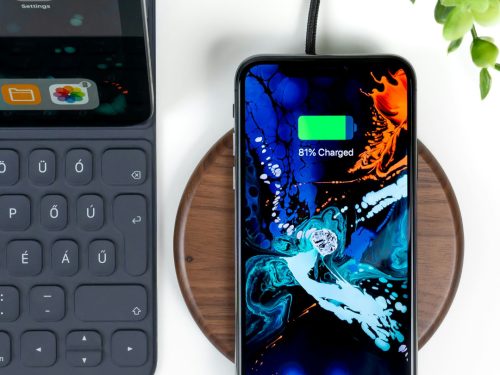


The Increasing Problem of SPAM Calls and How to Stop Them
In recent years, South Africans have been bombarded with an increasing number of robocalls and spam calls. For many, it’s not uncommon to receive 5 to 10 of these nuisance calls a day. This rise in unsolicited communication isn’t just a minor annoyance; it’s become a widespread frustration for consumers and businesses alike.
So, why is this happening, and why hasn’t the Protection of Personal Information Act (POPIA) effectively solved the problem? Let’s dive into the reasons behind this surge in spam calls and explore practical solutions to help you stop them.
Why Are Robocalls and Spam Calls Increasing in South Africa?
- Cheap Technology and Automation Advances in technology have made it easier for companies, telemarketers, and scammers to mass-produce calls. Robocalls—pre-recorded messages sent automatically—allow organizations to reach thousands of people at a fraction of the cost. The rise in VoIP (Voice over Internet Protocol) systems means that international spam calls can be made cheaply from anywhere in the world, with minimal regulatory oversight.
- Data Breaches and Selling Personal Information Data breaches are becoming more common, with personal information such as phone numbers being sold on the dark web or to marketing companies. This practice often leads to an increase in spam calls, as more companies gain access to your contact details. South Africa has seen its share of data leaks, adding to the frequency of unsolicited calls.
- Inadequate Enforcement of POPIA The Protection of Personal Information Act (POPIA) was introduced to safeguard personal data and ensure that individuals give consent before their information is processed. However, POPIA enforcement has been somewhat limited, and many companies exploit loopholes. Lack of sufficient resources, slow penalties, and challenges in tracking down violators mean that many organizations continue to operate without fear of significant consequences.
- Poor Accountability for Telemarketing Firms Telemarketing firms and scammers often operate in the gray areas of the law, making it difficult for regulators to trace them. Some companies mask their identities using fake caller IDs, making it hard for authorities to pinpoint the origin of the call and take action.
Why POPIA Hasn’t Been Effective So Far
The enactment of POPIA was a significant step towards data privacy and reducing unwanted communication. However, it has not been as effective as hoped for several reasons:
- Lack of Public Awareness: Many South Africans are not fully aware of their rights under POPIA, such as the ability to opt out of direct marketing. This lack of awareness means people may not take the necessary steps to protect themselves.
- Slow Implementation of Fines and Penalties: POPIA allows for heavy fines and penalties against companies that misuse personal data. However, the implementation has been slow, with few high-profile penalties being enforced.
- International Spam Calls: Many robocalls originate from outside South Africa, beyond the reach of local legislation like POPIA. This global nature of spam calls makes it harder to regulate, even with strong local laws.
What Can You Do to Stop Robocalls and Spam Calls?
While POPIA is a step in the right direction, there are several practical actions you can take to protect yourself from unwanted calls:
- Register with the National Opt-Out Database (Do Not Contact Registry) South Africa’s Direct Marketing Association has a Do Not Contact (DNC) list, which allows you to opt-out of receiving marketing calls. While this won’t eliminate all calls, it can reduce the number of legitimate companies contacting you.
- Use Call Blocking Apps There are various apps available that can help you block spam and robocalls. Apps like Truecaller, Hiya, and RoboKiller allow users to block known spam numbers and even identify incoming calls from unlisted numbers.
- Report Spam Calls When you receive an unsolicited call, report it to your mobile provider or to the Information Regulator, which is responsible for enforcing POPIA. The more reports they receive, the more likely they are to take action.
- Enable Call-Blocking Features on Your Phone Most smartphones have built-in features that allow you to block specific numbers or silence calls from unknown or private numbers. Use these features to cut down on robocalls.
- Opt-Out of Marketing from Companies You Engage With If you’re already receiving calls from companies you do business with, take advantage of their opt-out mechanisms. POPIA requires them to provide a clear way for you to stop receiving marketing communications.
Potential Pitfalls of POPIA Regulations and Blocking Calls with DMASA for Consumers
While POPIA and the DMASA opt-out list can reduce spam, they may also inadvertently block important service-related calls. For instance, if a consumer opts out of receiving marketing calls from a service provider, they might also miss out on critical follow-up calls, such as reminders about expiring insurance policies, notifications of overdue payments, or important updates about service disruptions. These communications can sometimes get bundled with marketing messages, meaning an all-or-nothing opt-out may cause consumers to miss vital information. Additionally, call-blocking apps and services might mistakenly flag legitimate calls as spam, resulting in missed opportunities for crucial customer support or follow-up services from businesses consumers actively engage with.
This can lead to frustration, especially when customers are expecting important callbacks or updates. Consumers need to carefully manage their opt-out preferences, ensuring they only block unwanted marketing while allowing essential service calls to come through.
Final Thoughts
The increase in robocalls and spam calls in South Africa has become a major frustration, but there are steps you can take to protect yourself. While POPIA lays a foundation for data privacy, its enforcement needs to be more robust, and South Africans need to be more proactive in exercising their rights. Until then, using call-blocking tools, being mindful of where your data goes, and reporting unwanted calls can help minimize the nuisance.
Written By: Nic Clainos. Edited By ChatGPT
Cellucity: HOD Online











